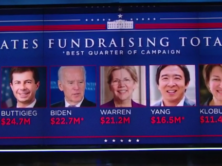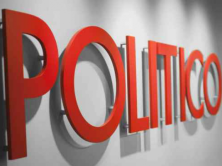
(Credit for all: YouTube, CNN, screenshots)
Pollsters and pundits apparently can’t figure out what this election is all about. While “It’s The Economy, Stupid” is so 1992, this year the polls continue to show that “the most important problem” for voters is the economy, as it was back when Bill Clinton first ran for president.
Well, if that’s true, and the economy is so bad, why is Obama winning? That’s the question Newsweek’s conservative columnist, Niall Ferguson, addresses, concluding that conventional wisdom is just plain wrong: “The economy really isn’t the No. 1 issue.” Sure, that’s what people say when they’re asked in polls, but gee willikers, “when asked to make a choice between Barack Obama and Mitt Romney, their choices don’t seem to be economically based.” (People are so annoying when they give pollsters unexpected answers.)
So, it must be something else – maybe it’s because Romney isn’t likeable, or he’s Mormon, or women are opposed to his anti-contraception policies, or “maybe, just maybe, this election is boiling down to a contest between white non-Hispanic men and everyone else.” That would really be terrible, he says (the crocodile tears welling up): “After all the high hopes of 2008, it will be depressing if that is the outcome of the Obama presidency: an electorate split along the dividing lines of race and sex.” Yes. Especially if Romney loses.
Another Newsweek columnist, Peter Beinart, writing from the left (literally as well as politically; if you are reading the magazine – Beinart’s on page 18, Ferguson’s on page 19), opines that “Mitt Romney is not a great candidate; Barack Obama is a better one. But without the Bush legacy, Romney would be leading this race.” (He gives no reasons for saying Obama is a better candidate than Romney. Apparently, he just expects his readers to agree.) He goes on to write that “Conventional wisdom holds that elections are about the future. Or about the personalities of the candidates. Or at least about voters’ perceptions of the last four years.”
But don’t believe conventional wisdom, Beinart tells us. (From both columnists, we learn an important lesson about punditry – whatever one writes should definitely not reflect conventional wisdom. Personally, I try to avoid it as well.) The election is really about the “branding” of the two parties, Beinart says. After a quick historical survey that suggests most elections were really about old or new branding, a tautological analysis that appears persuasive as long as one doesn’t look too closely at the evidence, he concludes that George W. Bush so hurt the GOP brand that until a new Republican leader stands up by “bluntly telling Americans where Bush’s presidency went wrong,” the Democratic Party will continue to prosper. This is an article that only Democrats will really like.
These columns bring to mind a recent poll done for The Hill, which also addresses what the election is all about. It finds that “61 percent of likely voters consider the presidential election to be more of a choice between President Obama and Mitt Romney than a referendum on the president’s first term in office. Just over one-third — 34 percent — of voters said they considered the election to be a judgment on Obama’s job performance in the White House.”
Now you may wonder why the election isn’t both a referendum on the president, as well as a choice between the two candidates. If you were called at six in the evening while you were eating dinner and asked on the basis of your innermost philosophical reflections to decide instantaneously whether the election was more about a choice of two candidates or a referendum on the incumbent, what would be your top-of-mind response? Wouldn’t you think that both factors were important – how well you think Obama has done, and whether you think Romney could do better?
Well, that brings us back to Allan Lichtman’s argument that the 2012 presidential race has already been decided – by Obama’s performance in the first two years of his presidency. Based on his 13 keys, all of which entail a referendum on the president, and which have successfully explained all the presidential contests since 1860 (when Lincoln first won), Lichtman predicted in May of 2010 that Obama would be re-elected, regardless of the GOP candidate.
So, Lichtman says, the election is not about Romney’s likeability, or religion, or contraception policies, or race; nor is it about the economy; nor is it what 61% of voters think (a “choice” between the two candidates). It’s solely about Obama and his performance.
Take your pick. The election’s about Obama. It’s about Romney. It’s about both Obama and Romney. It’s about George W.
Whatever you decide, it will sound more impressive if you say it defies conventional wisdom.






